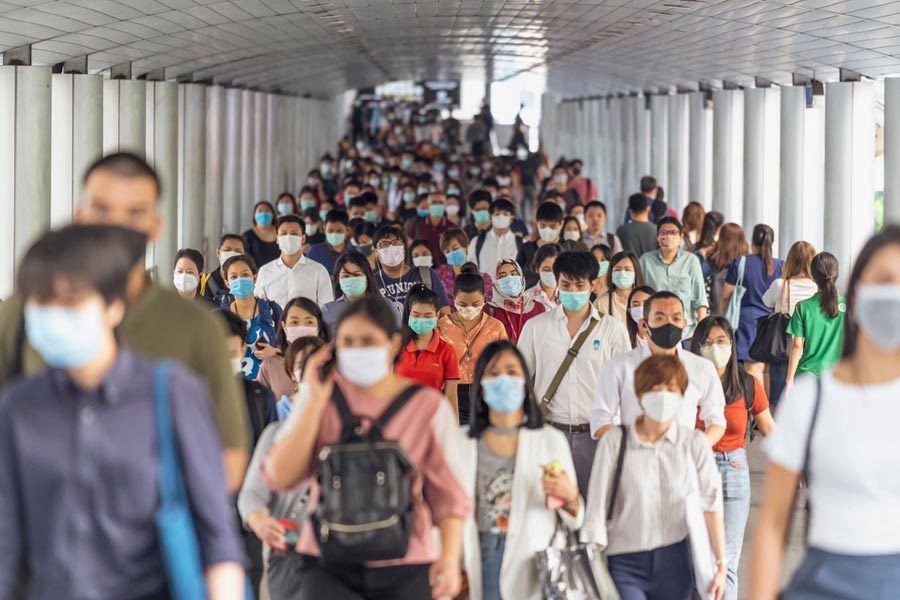One in six unvaccinated individuals report experiencing COVID-19 health effects up to two years after infection, according to a new study published in The British Medical Journal.
The study from University of Zurich, Switzerland, and other institutes examined 1,106 unvaccinated adults with an average age of 50 with a confirmed infection between 6 August, 2020, and 19 January, 2021, were studied, along with 628 adults (average age 65) randomly selected from the general population who had not had the virus.
Seventeen per cent of participants did not return to normal health and 18 per cent reported covid-19 related symptoms 24 months after initial infection, the study found.
Overall, 55 per cent of the participants reported returning to their normal health in less than a month after infection, while 18 per cent reported recovery within one to three months.
At six months, the study found 23 per cent of the participants to be unrecovered, a number that reduced to 19 per cent at 12 months and 17 per cent at 24 months.
Compared with people who did not have an infection, those with covid-19 were found to have excess risks for both physical problems, such as altered taste or smell (9.8 per cent), malaise after exertion (9.4 per cent), and shortness of breath (7.8 per cent), and mental health issues, such as reduced concentration (8.3 per cent) and anxiety (4 per cent) at month six.
The researchers looked at patterns of recovery and symptom persistence over two years in adults from the Zurich SARS-CoV-2 Cohort, an ongoing study of individuals with confirmed SARS-CoV-2 infection.
Participants provided information on 23 potential long covid symptoms six, 12, 18, and 24 months after infection. The study also took into account other potentially influential factors including age, sex, education, employment, and pre-existing health problems.
People who reported symptoms at all follow-ups or reported worsened symptoms were more likely to be older and to have pre-existing health problems, the study said.
The researchers acknowledged that these were observational findings and that there were several limitations, including that they focused on only wild type SARS-CoV-2 in an unvaccinated population and relied on self-reported health, which can be unreliable.
However, they said that regular assessments of a range of health outcomes, and similar findings after further analyses were found to strengthen the credibility of the estimates.
"Persisting health issues create significant challenges for affected individuals and pose an important burden on population health and healthcare services," wrote the authors, and they call for clinical trials "to establish effective interventions to reduce the burden of post-covid-19 condition." While most people who have covid-19 recover soon after the initial phase of the disease, there are others who experience persistent health problems, known as long Covid, which can impact their quality of life and ability to work.
Except for the headline, this story has not been edited by The Telegraph Online staff and has been published from a syndicated feed.

